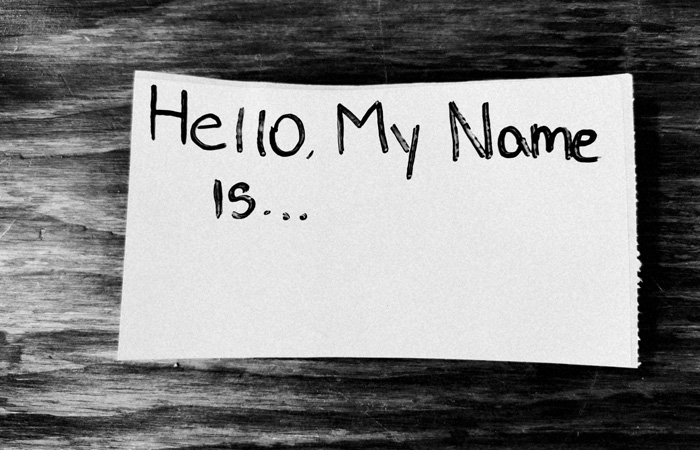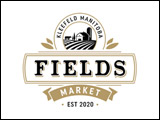As you all know the label on the plant at the greenhouse is pretty important. When buying tomatoes for instance, you would want to know if your plant is going to bear big fruit or little ones. That’s when the labels are vitally important. Labels are also one of the Achilles heels of greenhouses. With so many varieties of plants and so many staff hurrying to plant everything in time for the spring sales, you can see where the problem lies. The human error can set in and suddenly your petunias are not labelled as Cucumbers. That’s a slight exaggeration but it gets my point across. All it takes is a mislabelling at the seed source, or the little fingers of a distracted child and then poof, all of your plants are a mystery plant. Often times it’s even the on customer who forgets to put the tag back after they look. For all these things we apologize, labels are very important are plants and we work very hard to keep them tagged properly.
However as deeply needed labels are for plants, I am not fond of labels on people. When people get labelled that puts them in a box, suggesting they can’t change. Sometimes the labels are negative or derogatory. For example, I could be labelled ADHD. I passed the online test or fail depending how you look at it. I am on the spectrum regardless. This does not mean that I cannot learn some organization or learn to slow down my speech and not interrupt or get distracted. I can always improve.
In our industry this year I’ve heard the term COVID-19 a lot. There is a stigma tied to that word. When mentioned it brings up the thoughts of panic, of uncertainty, of grocery shortages. Not the most pleasant of thoughts. I wanted to talk about another COVID label, “The COVID Gardener”. I want to debunk the negativity that has been tied to this label. This spring our sales were up 70% over last year’s May. So, did COVID change how people thought about gardening? Absolutely! There was a little food fear, and a whole lot of, “what are we going to do all summer” questions. But to label someone a COVID Gardner almost seems like they just went with the flow, the mindless herd. I don’t think gardening during COVID was any of that. Sure, we have influence on each other to engage and things we hadn’t. But we had a reality to the fact that grocery stores did not have everything we wanted. And we did have the problematic thought of what will we do all summer…and with the kids at home! Many people enjoyed projects like deck building and the deck itself, setting up pools and trampolines for something to do. Gardening has a different twist to it though. Gardening is learning. First people needed to understand what they were purchasing, why would your family plant beans if they don’t like them? Then what do I need to do so these plants live. How do I plant, how do I water, how often do I need to weed? How much more do I water how much more do I have to weed! Not everyone who picked up gardening this year will continue. Was it a fad? Maybe, but probably more a response to a reality. The reality may change, and our perspective of a solution may change. Maybe painting around the house is more fun for you than picking a few weeds and the reward of home-grown veggies. Either way those who picked it up need encouragement right now to keep it up. It was fun to seed and plant and anticipate. But then the weed came and the watering was required and those weeds always grew faster with watering… now as we approach the end of summer we will be learning not just about the growing but the perseverance and processing of the food that took all the effort. First of all, keep on top of the weeds. It’s never fun to weed and it’s even worse when they’re big. What’s even worse is when their seed is prolific the next year. So stay at! It’s getting cooler making it more pleasant to be out in the garden. You can do this! Now there’s the harvesting and knowing when things are ready to be picked. Keep asking the right questions to those around you who have done this before. Don’t reinvent the wheel. Get the beans, peas, and cucumbers before they’re too big. Give away what you don’t need. Don’t pick your watermelon too soon! Keep a sharp eye on your corn cobs, it will get away on you, you don’t want corn paste. Your onions are forgiving you can get them early and small or bigger when the leaves start to tip over and dry off. Your tomatoes are pretty self-evident; they’re my personal favourite, toast and tomatoes for breakfast tomato sandwiches for lunch and tomatoes as a vegetable or on a burger for supper. There’s no wrong place for a good tomato. Radishes, lettuce, and spinach are probably all almost done, but the spinach may reseed and give you a low late fall crop, it can handle a fair bit of frost. I personally prefer a zucchini at about 6 to 8 inches long and sautéed! But many of you will grow them larger and have multiple uses. Pumpkins will be a little while, and potatoes can be dug for fresh-eating or left for a few more weeks if you like to store them. If beets and carrots are big enough have at them. Carrots can be left in the ground about as long as your spinach, usually mid too late October sometimes into November. If you are a canner or processor of your veggies but don’t have the time in summer, we have found a few tricks to that trade. We wash our tomatoes and freeze them and thought them later to make juice and sauce in November when we have time. We also freeze a lot of our veggies fresh because canning take so much more effort. Some things can’t wait pickles or if you prefer the can flavour to the frozen you will have some busy times ahead. I wait a minute didn’t you plant a garden, so you’d have some productive things to do this summer? Most of all enjoy the fruits of your labour whether is fresh or canned or frozen. I hope you had a great gardening season and wish you all the best. And just like farming there’s always next year.




